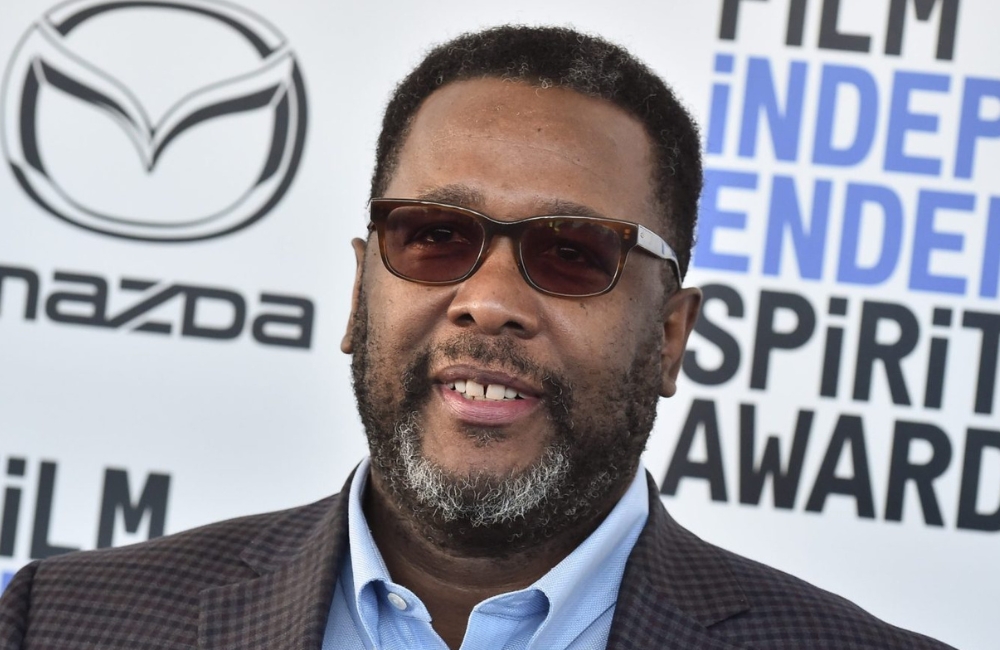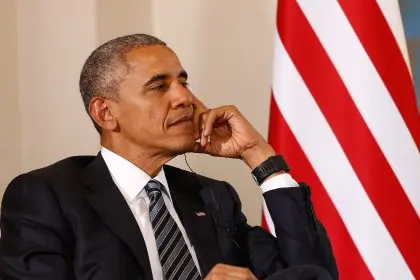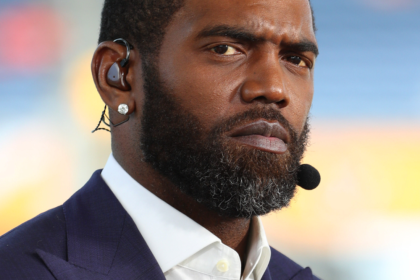In a bold move that’s sending shockwaves through political circles, actor Wendell Pierce has publicly challenged former President Barack Obama‘s recent comments about Black male voter support for Vice President Kamala Harris. This heated exchange has thrust the complexities of Black voter engagement into the spotlight with the 2024 election less than a month away.
During an impromptu visit to a Pittsburgh campaign office, Obama expressed disappointment over what he perceives as lackluster enthusiasm among Black male voters. Pointing to polls suggesting a slight uptick in Trump support within this demographic, Obama questioned, “And you are thinking about sitting out?” His remarks hinted at potential discomfort among some men with a female president, sparking immediate controversy.
Pierce fires back: Challenging the narrative
Pierce wasted no time in responding, taking to social media with a scathing critique. “Awful message,” he declared, asserting that the Democratic Party must cease scapegoating Black men. Pierce argued that the real issue lies with white voters, emphasizing the consistently high support Democrats receive from Black voters across gender lines.
The actor’s rebuttal highlighted a crucial point: Black men aren’t abandoning the party; they’re engaging in a necessary dialogue about their loyalty. Pierce urged the Democrats to embrace this challenge rather than adopting a condescending tone toward a key voting bloc.
Historical context: A shifting landscape
The debate unfolds against a backdrop of evolving voter patterns. While Black voters overwhelmingly supported Obama in 2008 and 2012, recent elections have seen a slight decline in turnout. The 2020 election, where 87% of Black voters backed Joe Biden, marked a dip from previous years, raising questions about party loyalty and outreach effectiveness.
Pierce’s argument gains strength when considering the higher voting rates of Black women compared to Black men. This disparity suggests a more nuanced approach is needed when addressing voter engagement across the Black community.
Debunking myths: The reality of Black male voting patterns
Despite concerns over a potential shift toward the Republican Party, data paints a different picture. Even if 20% of Black men were to vote for Trump, an overwhelming 80% would still support Harris. Moreover, research indicates that the percentage of Black voters under 50 leaning Republican has remained stable at around 17% for decades, challenging narratives of significant voter defection.
The path forward: Fostering inclusive dialogue
Pierce’s fiery response serves as a rallying cry: Rather than casting blame, the actor advocates for meaningful engagement with their concerns and expectations. This approach could pave the way for a more inclusive political environment that acknowledges the complexities of voter behavior.
Party leaders face the crucial task of recognizing Black voters’ loyalty while addressing their grievances. The Democratic Party must redouble its efforts to earn trust and support across all segments of its base, particularly those feeling marginalized.
Pierce’s critique of Obama’s remarks underscores the vital importance of understanding diverse perspectives within the Black community. As the political landscape evolves, fostering open dialogue and meeting the needs of Black voters will be paramount to the Democratic Party’s success in the upcoming election.
The clash between Pierce and Obama serves as a powerful reminder that assumptions about voter behavior can be dangerous. It challenges both parties to dig deeper, listen more intently, and respond more effectively to the nuanced concerns of all voters, regardless of race or gender. As the election draws near, this debate may well shape the strategies and narratives that define the race to the White House.















